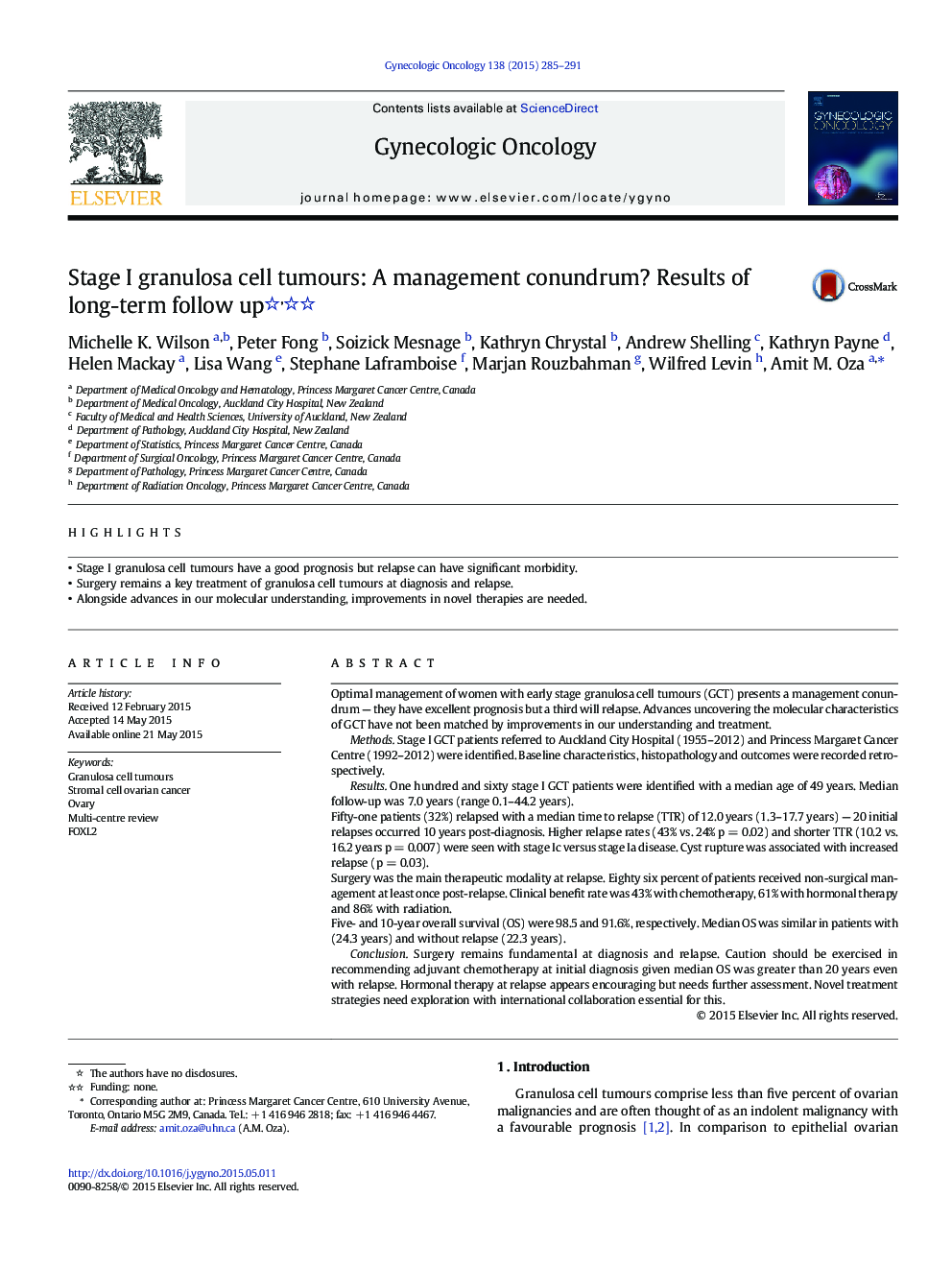| Article ID | Journal | Published Year | Pages | File Type |
|---|---|---|---|---|
| 3943149 | Gynecologic Oncology | 2015 | 7 Pages |
•Stage I granulosa cell tumours have a good prognosis but relapse can have significant morbidity.•Surgery remains a key treatment of granulosa cell tumours at diagnosis and relapse.•Alongside advances in our molecular understanding, improvements in novel therapies are needed.
Optimal management of women with early stage granulosa cell tumours (GCT) presents a management conundrum — they have excellent prognosis but a third will relapse. Advances uncovering the molecular characteristics of GCT have not been matched by improvements in our understanding and treatment.MethodsStage I GCT patients referred to Auckland City Hospital (1955–2012) and Princess Margaret Cancer Centre (1992–2012) were identified. Baseline characteristics, histopathology and outcomes were recorded retrospectively.ResultsOne hundred and sixty stage I GCT patients were identified with a median age of 49 years. Median follow-up was 7.0 years (range 0.1–44.2 years).Fifty-one patients (32%) relapsed with a median time to relapse (TTR) of 12.0 years (1.3–17.7 years) — 20 initial relapses occurred 10 years post-diagnosis. Higher relapse rates (43% vs. 24% p = 0.02) and shorter TTR (10.2 vs. 16.2 years p = 0.007) were seen with stage Ic versus stage Ia disease. Cyst rupture was associated with increased relapse (p = 0.03).Surgery was the main therapeutic modality at relapse. Eighty six percent of patients received non-surgical management at least once post-relapse. Clinical benefit rate was 43% with chemotherapy, 61% with hormonal therapy and 86% with radiation.Five- and 10-year overall survival (OS) were 98.5 and 91.6%, respectively. Median OS was similar in patients with (24.3 years) and without relapse (22.3 years).ConclusionSurgery remains fundamental at diagnosis and relapse. Caution should be exercised in recommending adjuvant chemotherapy at initial diagnosis given median OS was greater than 20 years even with relapse. Hormonal therapy at relapse appears encouraging but needs further assessment. Novel treatment strategies need exploration with international collaboration essential for this.
